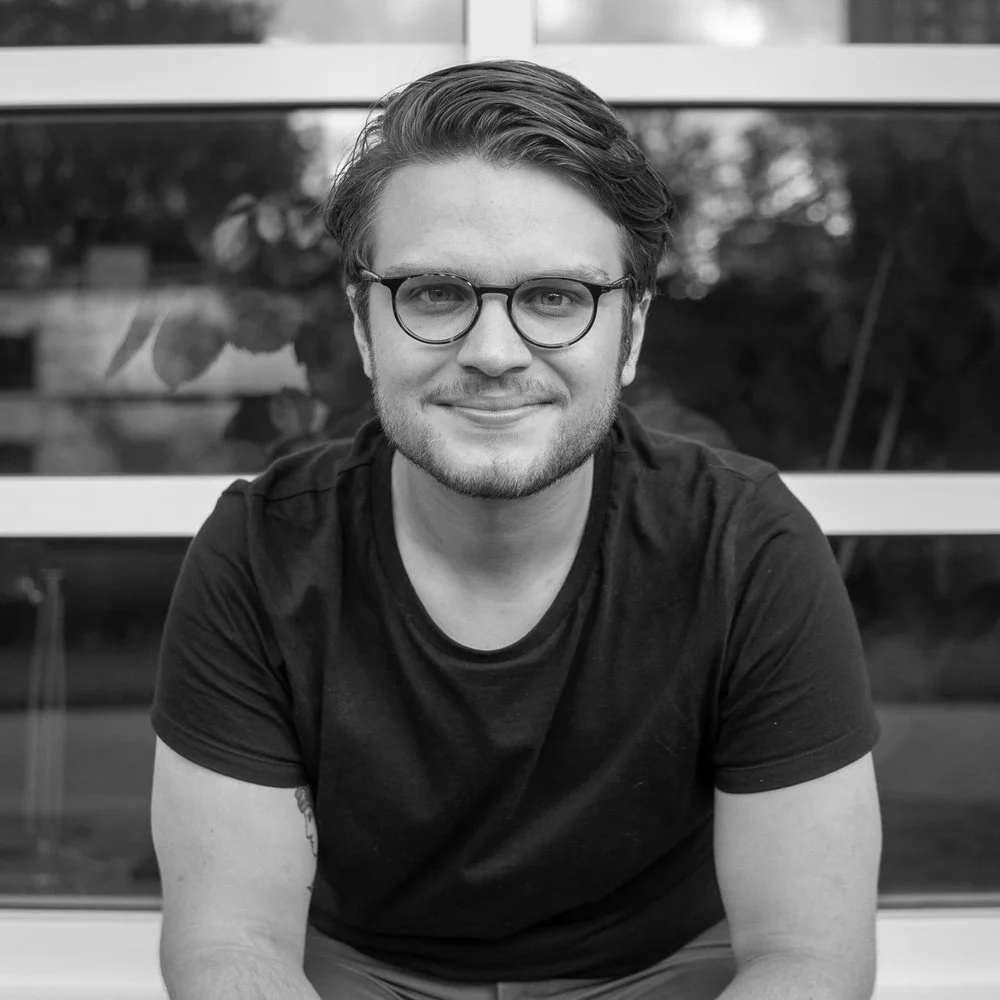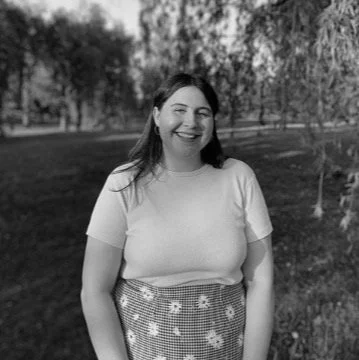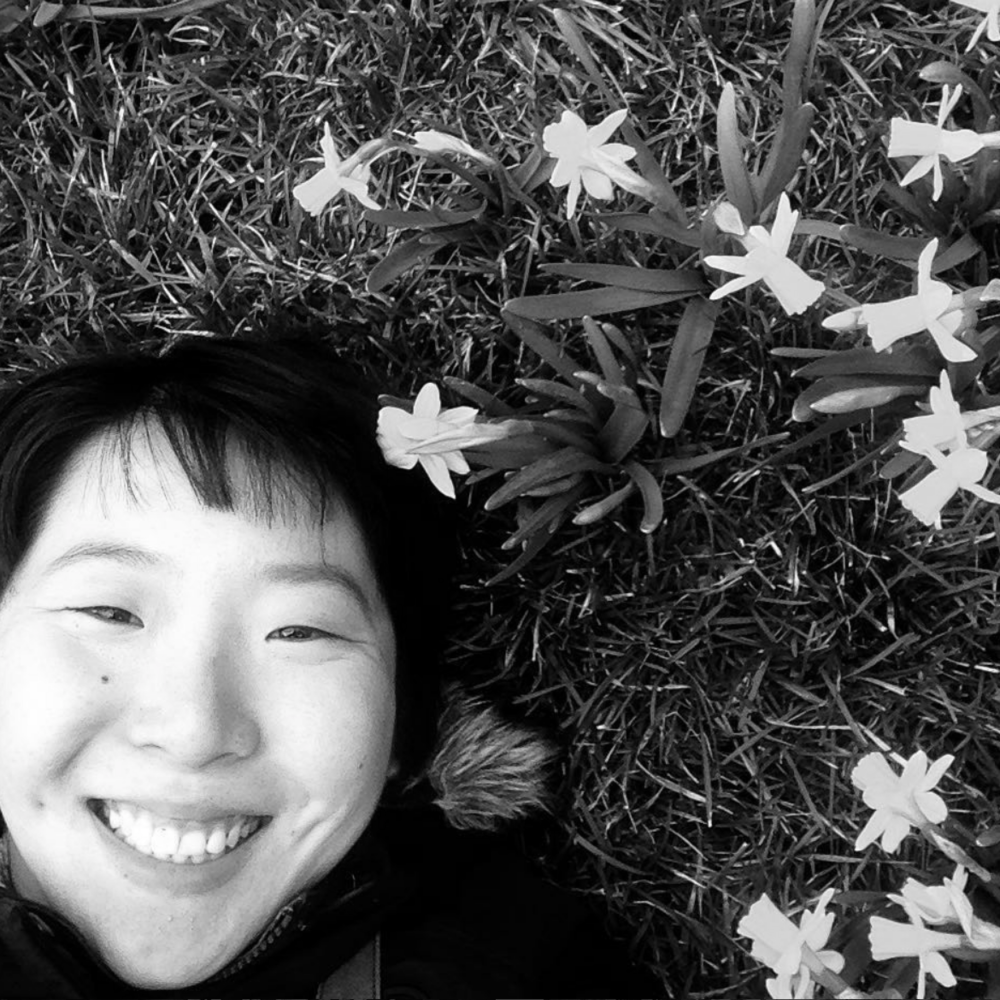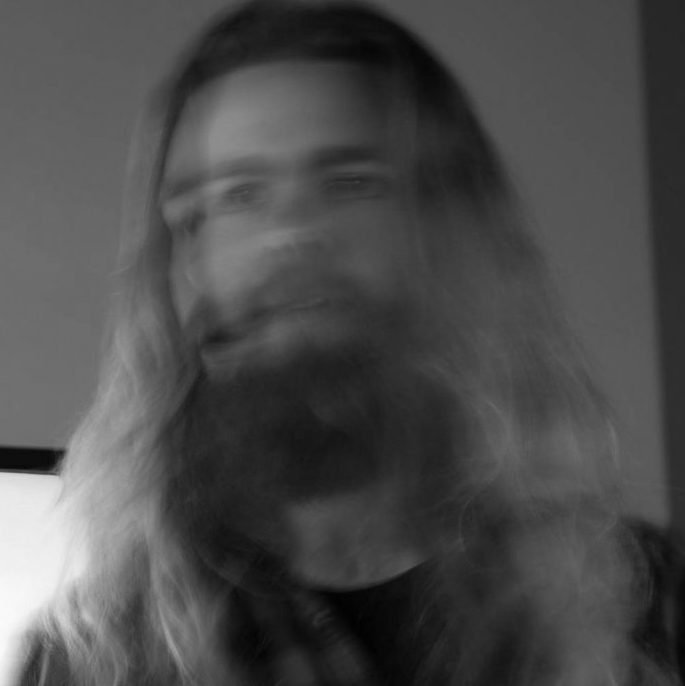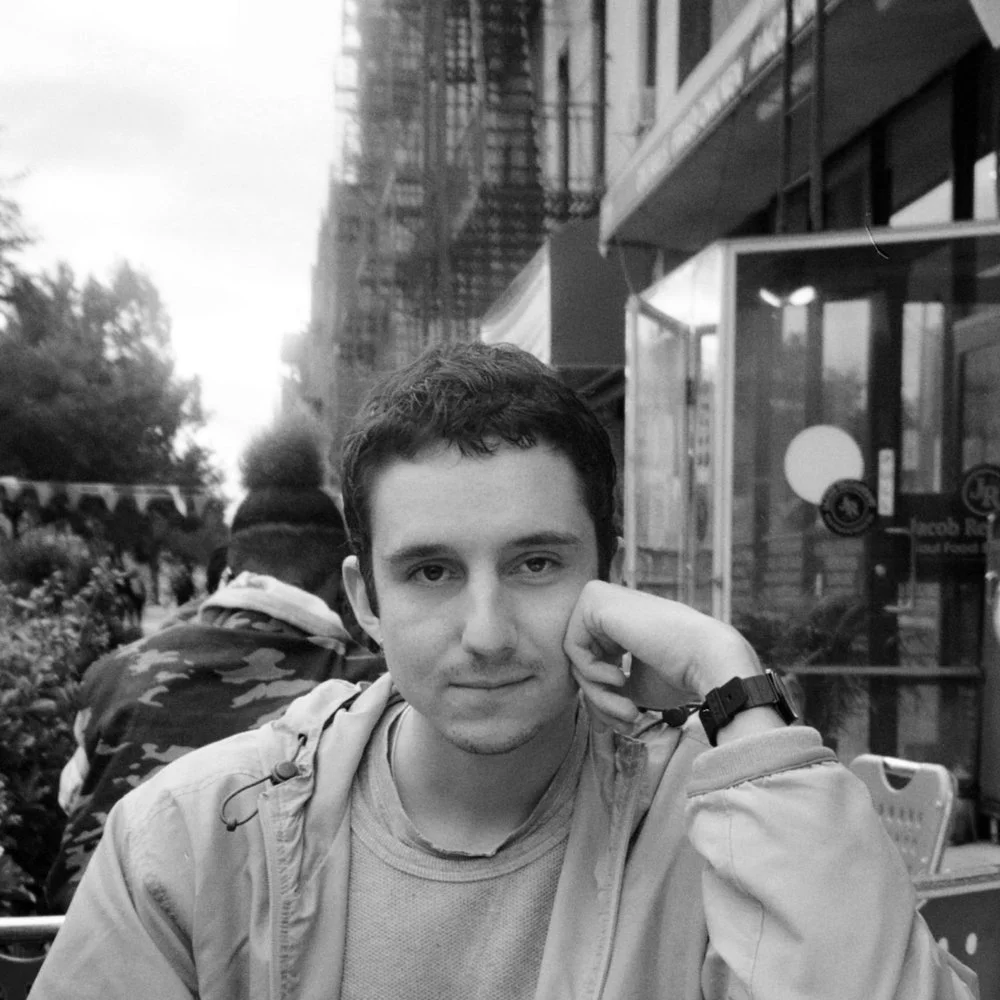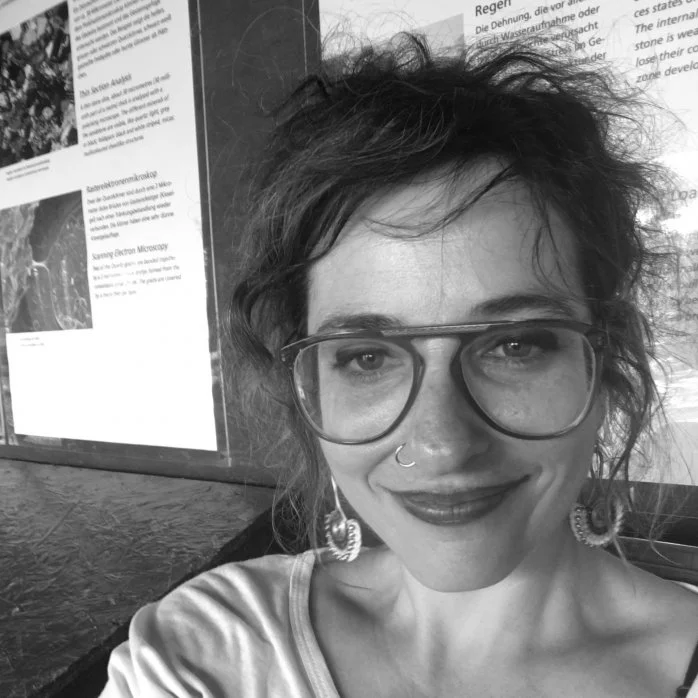DIRECTORS
Dr. Jill Didur
-
She is co-editor of Global Ecologies and the Environmental Humanities: Postcolonial Approaches and author of Unsettling Partition: Literature, Gender, Memory. Didur is the Director of the Critical Anthropocene Research Group (CARG), a collaborative research group that investigates the cultural, historical and political roots of human-induced climate change with an emphasis on its origins in the history of empire, race, and globalization. Didur is the creator of the locative media applications The Alpine MisGuide and Global Urban Wilds exploring the entanglement of colonialism, environment and sustainability. She is completing a co-edited volume with Nalini Mohabir, (Post)Colonial Ports: Place and NonPlace in the Ecotone (forthcoming, 2024). Her current SSHRC funded research (2014-2023) focuses on locative media, globalization, and environmental storytelling.
Dr. Kregg Hetherington
-
He has written extensively about how small farmers caught in a sweeping agrarian transition in Paraguay have experienced that country’s halting transition to democracy, showing how activists create new ways of thinking and practicing government. His book, Guerrilla Auditors, is an ethnography of peasant land struggles in Paraguay, and of how rural thinking about property and information come into conflict with bureaucratic reform projects promoted by international experts. His current research focuses on regulation in the soybean boom in Latin America’s southern cone is transforming the relationship between states, plants, people and territory. At Concordia he leads a research group on Infrastructure and Environment that brings together scholars working on a variety of intersections between these two key terms, including agrarian and energy transitions.
FACULTY
Dr. Jesse Arseneault
-
With a background in African Cultural Studies, his teaching and research focuses primarily on the relationship between other-than-human life and contemporary Southern African literatures and cultures. He also works in the fields of queer theory, post- and de-colonial studies, cultural studies, and critical race theory. He is the co-director of the Society, Politics, Animals, and Materiality (SPAM) Centre, an inter-university and interdisciplinary collective of scholars researching relationships between human and nonhuman life. His current work focuses on the role of the pest in colonial and capitalist ecologies, as well as the ongoing cultural and political legacies of the decolonial, student-led #FeesMustFall and #RhodesMustFall movements in South Africa.
Dr. Carolina Cambre
-
Dr. Carolina Cambre’s work explores vernacular visual expression asking: How do people produce and direct the visual space? How is the image a doing? What are the social and cultural work/ings of images? She has ongoing projects on visual processes of legitimation, representation of online sharing, visual politics of identity, and polymedia literacies. She is the author of The Semiotics of Che Guevara: Affective gateways (2015) and co-author of The Filtered Face: Toward a Sociology of Selfies with Christine Lavrence. Cambre is also co-editor of Mediated Interfaces: The Body on Social Media and Visual Pedagogies: Concepts, Cases & Practices. Cambre’s artistic work in the mediums of encaustic, photography, and multi-media collage has been featured as cover art for a number of magazines and books as well as juried competitions.
Dr. David Howes
-
He is also the Director of the Concordia Sensoria Research Team (CONSERT). He teaches courses on law, commerce, aesthetics, and the senses in cross-cultural perspective.
www.david-howes.com
Dr. Chris Hurl
-
His research explores the legacies of scientific management in urban governance from the early twentieth century to the contemporary period. His past work looked at how changing labour relations practices in Canadian municipalities contributed to the emergence of a modern infrastructure ideal in the public sector. He is currently working on two research projects looking at the role of new technologies for auditing, benchmarking, and risk assessment in reimagining public infrastructures in Canada and Germany. His research has appeared in Environment and Planning A, Studies in Political Economy, International Journal of Urban and Regional Research, Labour / Le Travail, and the Journal of Canadian Studies. He is also the co-editor of Corporatizing Canada (Between the Lines, 2018).
Dr. Alice Jarry
-
She is the strategic hire in ‘Materials and Materiality,’ a member of the Canada Excellence Research Chair Cluster in Next Generation Cities (Concordia University), and the director of Milieux's Speculative Life Biolab. As an artist-researcher, she specialize in site-specific responsive works, sci-art practices, socio-environmental design, and tangible media. Her research brings concerns about sustainability, aesthetics, and politics to bear critically upon materiality, material production, and contemporary matters-of-concern regarding urban infrastructure. Her current research focuses on waste, residual matter, and smart and biomaterials for the built environment. She examines how materiality can provoke the emergence of adaptive forms and resilient socio-environmental relations when engaged in processes of transformation with site, technology, and communities -
Jarry is also a member of Kheops - International Research Consortium on the Governance and Management of Large Infrastructure Projects; the Hexagram International Network Dedicated to Research-Creation in Media Arts, Design, Technology and Digital Culture; The Living Architecture Systems Group (Waterloo); the Topological Media Lab (Concordia University); and the Montreal based Digital Arts Collective Perte-de-Signal.
Her research received funding from SSHRC, FRQSC, and Hexagram. Her works have been presented at Centre George Pompidou (Paris), Vox Centre de l’image Contemporaine (Montréal), Biennale Nemo (Paris), Leonardo Da Vinci Museum of Science and Technology (Milan), Automata (International Digital Arts Biennial, Montreal), Le mois Multi (Quebec), Device_Art Triennale (Zagreb), Invisible Dog Art Center (New York), Mons 2015, European Capital of Culture (Mons), Physicalité (International Digital Arts Biennial, Montreal), La gare numérique (Jeumont), the LASER series (Leonardo) and in several other locations across Canada, the United States, and Europe.
Dr. Fenwick McKelvey
-
Amidst discussion of the Internet of Things, Fenwick McKelvey studies the Internet as Things. Investigating the machines, bots, artificial intelligence, algorithms, and daemons that make up the Internet, his research takes him from debates at the CRTC to data centres and from Gilles Deleuze to John Dewey. His recent and ongoing studies have focused on algorithmic media regulation, the global regulation of AI and the computational turn in American political imaginaries. Fenwick McKelvey is an Associate Professor in in Information and Communication Technology Policy as well as a member of Speculative Life's Machine Agencies.
Elizabeth Miller
-
She is also a documentary maker who uses collaboration and interactivity as a way to connect personal stories to larger timely social issues. Her documentary projects on timely issues such as water privatization, refugee rights, gender and environmental justice, and climate resilience have won international awards, been integrated into educational curricula, and have influenced decision makers. Liz has partnered with international organizations including Witness (USA) and UNESCO. She has published several articles and book chapters on the use of interactive non-linear documentaries as social change interventions. Her co-authored book with Steven High and Ted Little, Going Public: The Art of Participatory Practice profiles socially engaged practitioners exploring the political, aesthetic, and advocacy dimensions of research-creation.
Dr. Nalini Mohabir
-
She writes, researches, and teaches in the fields of feminist and postcolonial migration geographies, and is interested in gender and racial justice. She has published articles in Small Axe, Wasafiri, and Topia, and has co-edited The Fire That Time: Transnational Black Radicalism and the Sir George Williams Occupation.
Dr. Bart Simon
-
Simon’s research is focused on the areas of science and technology studies, critical post-humanism, and everyday technocultures with specific interests in digital culture, games and virtual worlds, and simulation, surveillance, and social control.
In 2004, Simon launched the Montreal GameCODE project, a Concordia-based research initiative to examine the cultural impact of digital games. In 2009 he became the director of a new broader cross-faculty research initiative in Technoculture, Art and Games (TAG).
His recent publications include “Geek Chic: Machine Aesthetics, Digital Gaming, and the Cultural Politics of the Case Mod,” “Never Playing Alone: The Social Contextures of Digital Gaming” and “Beyond Cyberspatial Flaneurie: On the Analytic Potential of Living with Digital Games.”
Dr. Carly Ziter
-
She is a core faculty member of Concordia’s interdisciplinary cluster for Smart, Sustainable, and Resilient Cities and Communities. She completed an MSc in biology and natural resources sciences at McGill, and a PhD in landscape ecology at the University of Wisconsin-Madison in 2018. Her research asks how landscape structure, land-use history, and biodiversity impact multiple ecosystem services (the benefits we receive from nature) and their relationships in urban and urbanizing landscapes. Her research program centers on the ecosystem services concept as a lens through which to ask ecological questions related to sustainability, policy, and practice. While research in the lab is grounded in landscape and ecosystem ecology, she recognizes that addressing complex environmental problems is inherently inter- and transdisciplinary. She strives to develop research partnerships both within and outside the university setting, and values community engagement as integral to her work
POSTDOCTORAL FELLOWS
Jean-Michael Celerier
-
He studied software engineering, computer science, and multimedia technologies at Bordeaux, and obtained his doctorate on the topic of authoring temporal media in 2018. He develops and maintains a range of free and open-source software used for creative coding, interactive and intermedia art. Most of his work is focused on the ossia platform for which he is the lead developer and which has been leveraged on installations, events, and artworks around the world. He enjoys giving talks as well as organizing events on C++, programming, and media art, and teaches all sorts of creative coding languages (including PureData, Processing, and OpenFrameworks).
Marcelina Piotrowski
-
She completed her PhD in Cross-Faculty Inquiry in Education at the University of British Columbia. She did her Masters in Communication and Culture at York and Ryerson Universities. Her research focuses on environmental media, bio/political subjectivity, sensor technology, and posthumanism in knowledge projects aimed at education in ecological change. Her current SSHRC-funded project examines sensing in environmental media, especially ecological sensor technologies, chaos, and how conditions of planetary life are increasingly sensed through wearable informatics at the level of the personal and biological. It focuses on the extent that sensor data morph the idea of a ‘thinking subject’ while attempting to proliferate and democratize data for public environmental education. Her work is often informed by the work of Gilles Deleuze and Henri Bergson, continental philosophy, and research creation through concept work. Her work has been published in Canadian Journal of Communication, M/C: A Journal of Media and Culture; Critical Studies in Education, the Journal of Curriculum and Pedagogy, Continuum: Journal of Media and Culture, and Environmental Education Research.
marcelinapiotrowski.com
Kasia Van Schaik
-
She is researching new ways to attend to our landscapes and ecologies through environmental storytelling, feminist artmaking, and collaborative knowledge production. Kasia is the author of the story collection We Have Never Lived on Earth and the eco-poetry chapbook, Sea Burial Laws According to Country, which was turned into a concerto and performed by the Montreal music lab in 2019. Her current projects include a book of cultural criticism entitled Women Among Monuments: Solitude, Permission, and the Pursuit of Female Genius and a chapter on the uses of digital humanities tools in contemporary ecological poetry for the Routledge handbook, AI and Literature. Kasia also co-edited an essay collection entitled Shelter in Text, which interrogates the relationship between the physical and textual spaces we inhabit. Her essays have appeared in the LA Review of Books, CBC Books, Maisonneuve Magazine, English Studies in Canada, Electric Literature, Jacket2, and Senses of Cinema. In 2021, Kasia served as a CBC QWF writer-in-residence.
GRADUATE FELLOWS
Brice Ammar-Khodja
-
Brice Ammar-Khodja is an artist, graphic designer, and Ph.D. student based in Montreal and Paris. His work examines active materials, residual matter, and low-technologies to explore the socio-environmental and political interconnections pertaining to materiality and visual information. He is currently pursuing a thesis jointly supervised at Concordia University, Montreal (Individualized Program) and EnsAD, EnsadLab, Paris (Reflective Interaction research group, SACRe program).
He is a member of the Speculative Life Research Cluster (Milieux Institute), the Centre for Sensory Studies, and the Concordia Canada Excellence Research Chair in Smart, Sustainable and Resilient Communities and Cities. Brice is also a member of the international research-creation network Hexagram.
As the co-director of the typography magazine Pied de Mouche, he has created workshops and educational tools for the general public.
His works have been exhibited at Ars Electronica, MUTEK, Centre Pompidou, Biennale internationale du Design, la Cité internationale des Arts, V2_Institute for Unstable Media, Musée historique de la Ville de Strasbourg.
Isabelle Boucher
-
Isabelle Boucher holds an MA in Philosophy and is a PhD student in Communication Studies at Concordia University. Situated at the intersection of feminist science and technology, energy humanities, discard studies, and political ecology, her research examines the grammars of energy, and more specifically, how they inform the narratives, policies, and infrastructures of Quebec and Canada’s sustainability frameworks. By considering the triangulation of language, knowledge, and power through their colonial and extractive histories, she highlights the critical intersection of environmental and social justice issues and argues for the importance of epistemic justice at the heart of decolonial energy imaginaries. She recently collaborated with Professor Liz Miller on a creative research project about the environmental and colonial histories of Montreal's Notre Dame and Sainte Hélène islands. As part of that project, she was the lead author of a segment of the WasteScapes locative app, which was presented at Concordia's Faculty of Fine Arts Symposium 2022. Isabelle is currently the coordinator of the DEMO programming at the Hexagram Network, a member of Concordia’s Milieux Institute and its student-run Solar Media Collective, as well as a research assistant for the Institute’s Ethnography Lab.
Isabella Byrne
-
If it’s obscure, unconventional or vaguely mystical, Isabella is interested. Preoccupied with spatial construction and games since she was a child, this budding academic has interests in materiality, ritual, embodiment, visualization and all that is esoteric.
She has just completed her BA in Anthropology and Religions & Cultures at Concordia and finds her service industry job as a barista akin to a mix between dance and Zen meditation. She can be found covered in coffee grinds, practicing Wing Chun, planning her next pilgrimage, doing work on Tarot and playing cards, or dreaming about roasted butternut squash.
Adriana Cabrera Cleves
-
Adriana is a museologist, curator, social and cultural researcher, and consultant in human rights and social justice with over 20 years of international experience. She is interested in the social impact of museums and the development of a framework for human rights in museums. Currently, she directs ElevateMuse, a research and consulting initiative she founded to contribute to the development of the museology of social justice and human rights and to help transform museums into communities of practice.
In the museum field, Adriana created and directed the Department of Communications at the National Museum of Colombia and served as Associate Vice-President of Cultural Programs at the Museum of Latin American Art in Los Angeles, California. In Canada, she worked at the Royal British Columbia Museum and collaborated with the first international exhibition Lieu de la mémoire : un musée contre l’oubli of the Museum of Memory and Human Rights of Chile in Montreal. As curator, she led the Temporary Museum of Memory and Solidarity with the Colombian armed conflict engaging the Colombian community in Quebec and co-curated the exhibition Images and Power: Black Women at Concordia’s Curating and Public Scholarship Lab. She has also provided consulting services to the Montreal Holocaust Museum.
Adriana taught exhibitions and public programs development at the University of San Diego, USA, and is now instructor of Concordia University’s Leadership Series of the Graduate and Professional Skills Program. At Concordia University’s Ethnography Lab she co-initiated the Working Group devoted to researching Human Rights. The research group’s current project is a study of the ethnography of the McCord Museum’s approach of Human Rights in the exhibition Shalom Montreal.
Adriana holds an MA in Museology from the Amsterdam University of the Arts-Reinwardt Academy, Netherlands. She also holds a Graduate specialization in Cultural Management from the Universidad del Rosario, and a B.A. in Social Communication and Journalism from the Universidad Javeriana, Colombia. She is now pursuing a doctoral degree in Social and Cultural Analysis (Sociology and Anthropology) at Concordia University.
Melina Campos Ortiz
-
Melina Campos Ortiz is a PhD student in the department of Sociology and Anthropology at Concordia. She holds a MA in Media Practice for Development and Social Change from the University of Sussex in England and a BSc in Economics from the University of Costa Rica. She uses Feminist Science and Technology Studies to explore human-soil relations in organic farming in Quebec, paying particular attention to Central American migrant workers' experiences. Melina looks forward to combining her passion for speculative non-fiction and creative ethnographic practices to produce a multi-media project to re-imagine organic farming storytelling. Melina is also an active member of the Concordia Ethnography Lab. She currently coordinates an SHRCC-funded project that seeks to strengthen the ties between ethnography labs in North America while exploring ethnography at its innovative margins. She is an active member of the Milieux Institute, where she has shown her work and often contributes as a writer for their website.
Hanine El Mir
-
Hanine El Mir is an avid activist and an aspiring anthropologist. She holds a BA in English Literature and a BA in Media/Communications, with two minors in Film/Visual Studies and Arabic Language, from the American University of Beirut. She is currently pursuing an MA in Social & Cultural Anthropology at Concordia University. She works as a researcher, journalist, writer, and translator, and dreams of becoming a thesaurus one day. Her research interests include food stability, mobilities and accessibility, and intersectionality.
In her free time, Hanine tends to the community garden, cooks at a vegan solidarity kitchen, and makes games which you can find here on her itch.io page.
Janna Frenzel
-
Janna Frenzel is a PhD student in Communication Studies at Concordia University supervised by Dr. Alessandra Renzi. Her doctoral research asks how the relationship between digital technologies and humans, non-humans, land, and climate is (re)mediated through different sets of infrastructural practices and sociotechnical imaginaries that are sometimes referred to as “green” computing. By looking at examples from both corporate and non-profit, communal settings, it investigates how attempts to decarbonize the Internet play out within tensions between continued extractive logics and approaches that try to re-imagine digital communication and energy infrastructures around principles of collective ownership, decentralization, and reciprocity.
Janna's research is supported by a Concordia University Graduate Fellowship (2019-2023) and a SSHRC Joseph-Armand Bombardier doctoral scholarship (2021-2024). Before starting the PhD program, Janna worked as a communication strategist and writer/editor for the non-profit sector. She holds a BA and MA in Political Science from the Free University of Berlin.
Nick Gertler
-
Nick Gertler is a master’s student in Media Studies at Concordia University and a member of the Machine Agencies working group. His thesis research—funded by graduate scholarships from both SSHRC and FRQSC—focuses on algorithmic impact assessments and algorithmic governance in Canada.
Amrita Gunrung
-
Amrita Gurung is a second year PhD student in the Social and Cultural Analysis program and currently part of the Montreal Waterways research project at the Ethnography Lab. Her research interests include mobilities, labour and migration, disaster, environment and infrastructures, and Nepal and Himalayan studies. Her PhD research looks at the nexus between student mobility and transnational diaspora formation in Canada. She is also a coordinator for the Mental Health Action Group for TRAC.
Robert Hunt
-
Robert Hunt is a PhD student in the Department of Communication Studies at Concordia University. He received his MA in media studies from Concordia and his BA in English from Emory University. Hunt’s doctoral research investigates the evolving relationship between artificial intelligence technologies and office work, examining the use of automation and data analytic software by human resources departments in practices ranging from hiring to employee evaluation to monitoring well-being to termination. The producers of these tools claim they can detect, quantify, represent, analyze, predict, and even control workers’ communications, behaviors, and physiological and psychological states. Analyzing the HR software industry, the culture of data-driven management, and the scientific discourses that support both, Hunt explores how the contemporary office—whether a physical, sensor-rich space, a distributed network of remote workers, or a hybrid of both—functions as a laboratory for continuous and ubiquitous experimentation. His other research interests include biometric, psychometric, and affective surveillance; content discovery on digital platforms; the use of AI in online advertising; and datafication in the attention economy.
Élie Jalbert
-
Élie is a PhD student in Anthropology at Concordia University. Broadly speaking, he is interested in politics, or how humans negotiate their place in the world. Specifically, his research interests tend to gravitate around environmental politics—from land use, resource management, and the administration of collective life, to concerns about knowledge construction and circulation and the distribution of agency and imagination in the contest over divergent social futures. His MA thesis tried to analyze these themes by following the controversy over the currently defunct Energy East Pipeline Project (RIP 2013-2017), which pinned the projected expansion of western bituminous sands against a range of local, regional, and global concerns. At present, he is interested in the social, political, and technical agency of water in and around Montreal, an interest he has been developing within the Montreal Waterways group at the Ethnography Lab. His previous research looked into the controversy that bubbled up in response to the city’s plans to dump 8 billion litres of raw sewage into the St. Lawrence river as part of preventative maintenance conducted on a major interceptor sewage pipe in 2015. He is currently investigating how the Lachine Canal has been involved in shifting forms of urban development.
Priscilla Jolly
-
Priscilla Jolly is a PhD candidate in the department of English at Concordia University. Her work focuses on postcolonial studies and environmental humanities. She is interested in speculative fiction, landscape representation and environmental history. Her work has appeared in Postcolonial Text, ETropic and the Conversation Canda. She is currently co-editing a journal named Refractions.
Maurice Jones
-
Maurice Jones is a curator and critical AI researcher based in Tiohtià:ke (Montréal), Canada and Tokyo, Japan. He's currently a PhD candidate at Concordia University, Montréal and an Associate Researcher at Humboldt Institute for Internet & Society in Berlin, Germany.
Since 2016, he is active as the Artistic Director of MUTEK.JP, an electronic music and digital arts festival in Tokyo. In 2021, Maurice joined MUTEK’s Montréal headquarters in developing MUTEK Forum's market activities and professional programming.
His interests include critical investigations of technology policy, cross-cultural perceptions of Artificial Intelligence, and curatorial practice for research-creation. He seeks to inspire open and inclusive discourses about technology through his curatorial and academic activities.
Saskia Kowalchuk
-
Saskia is a Media Studies Master’s student whose research focuses on memes, participatory cultures, and their intersection with platforms. In the past this has allowed her to work on the function of memes within partisan spaces online as artifacts of political communication and on the formal technique of “deep frying” memes as a meta-commentary on memetic communication, which she presented at the 2018 Association of Internet Researchers’ conference.
For her thesis, she is focusing on TikTok as a new horizon of memetic production, where participatory cultures meet algorithmic cultures and raise important questions about labour, attribution, and compensation.
Saskia completed her BA in Communication and Cultural Studies at Concordia, and funded by both SSHRC and FRQSC.
Maya Lamothe-Katrapani
-
Maya Lamothe-Katrapani is a master’s student in Anthropology at Concordia University, and is interested in urban waterways, gentrification, and emotional attachments to place and architecture. Her research examines the divergent values, histories, and meanings attributed to Montreal’s Lachine Canal and the role of waterfront redevelopment and greening initiatives in gentrifying the Sud-Ouest borough. She holds a BA from Concordia in Sociology and Anthropology, and has studied architecture and urban design during an exchange at Københavns Universitet in 2021. She is currently the coordinator of the Concordia Ethnography Lab, which she joined as a member of the Montreal Waterways research group. Maya also has a photography practice and a strong interest for visual ethnography which has led her to organizing film nights and Q+As with Montreal-based filmmakers at the Concordia Ethnography Lab.
Valérie L'Heureux
-
Valérie L’Heureux is a language nerd and the mom of lovely twins. She is also a PhD Candidate in social and cultural analysis at Concordia University interested in transnational social movements' strategies and influence, the politics of radical internationalism, and relational ethics. Her thesis focuses on the decolonial praxis of the Global Left and militant ethnography. Valérie is currently working on a research project on philanthrocapitalism in Africa and co-editing a book on social movements in Paraguay. She holds a BA in International Studies and an MA in Political Science. Before going back to school, she worked for a decade in network management for non-governmental organizations, including as Secretary-General of the World Association of Community Radio Broadcasters (AMARC) and Coordinator of Québec International Trade.
Brennan McCracken
-
Brennan McCracken is a student and writer from K’jipuktuk (Halifax, NS) currently living in Tiohtià:ke (Montréal, QC). He is an MA student in the department of English at Concordia where he is working on a thesis project that considers the ecological and speculative affordances of contemporary experimental prose. His research interests encompass the environmental humanities, queer and wild theory, decolonial studies and critical posthumanism.
His writing on contemporary literature, music and culture has been published in Maisonneuve, Musicworks, This, Visual Arts News, and The Coast, Halifax’s alt-weekly. He also works as a Social Media Assistant for the Milieux Institute for Arts, Culture and Technology and serves on the jury of the Polaris Music Prize. He likes experimental music, analog media, and the ocean.
Leona Nikolić
-
Leona Nikolić is a SSHRC-funded PhD student in Communication Studies at Concordia University specializing in new media, app studies, and digital humanities. Her research explores relationships between technology and spirituality, the ways in which we believe in technologies, and the embodiment of consciousness in our digital objects. She is particularly interested in astrology apps for smartphones as sites of knowledge production that both shape and are shaped by ambivalent cultural narratives about human and artificial intelligence, as well as the potential for algorithmic media and AI to generate authentic spiritual experiences. Leona has been invited to present at academic conferences locally in Montréal as well as internationally in the UK, Turkey, France, Denmark, and Mexico. Her research has been published in academic journals, her creative writing has been featured in various literary publications, and she has participated as an artist in a handful of group art shows. Her latest publication appeared in MAST: The Journal of Media Art Study and Theory (State University of New York at Buffalo) and she recently participated in a round table, “What We Do with Screens and What Screens Do to Us” at Écran Total: Exhibition & Symposium (Centre de design de l’UQAM).
Tracy Qiu
-
Tracy is a first year student in Concordia’s individualized program. Tracy’s research interests include the botanical gardens, how to reckon with their colonial histories, and how decolonizing practices for botanical gardens can create space for alternate botanical epistemologies and ways of relating to nature.
Alexandre Saunier
-
Alexandre is an interdisciplinary artist and doctoral student. He specializes in physical computing technologies with which he associates computer and physical systems, challenges perceptions of digital machines, and seeks sensible links with abstract processes.
Alexandre’s PhD project focuses on live light performance. In developing and experimenting with light instruments, he explores the bidirectional relation between humans and machines. Central to Alexandre’s work is the question of how technology reshapes us as we create it.
He holds a master in sound engineering from the ENS Louis Lumière (France) and participated in research works on interactive light systems and behavioral objects at the ENS Arts Décoratifs (France).
His artistic work has been exhibited in several French and international festivals, such as Taking Care at Ars Electronica 2018, Eniarof, Exit. He also conducts workshops in numerous contexts, including the Conference on Tangible, Embedded and Embodied Interaction ’14 in Munich.
David Shaw
-
David Shaw is a PhD candidate in the English department at Concordia University. His research focuses on posthumanism, postcolonial theory, and the intersection of realism and climate change. He is the coordinator of the Representing the Anthropocene reading group and a member of the Critical Anthropocene Research Group (CARG).
Manoj Suji
-
Manoj Suji is a Ph.D. student in Social and Cultural Analysis at Concordia University in Montréal. His research interests are situated at the intersection of political anthropology, environmental politics, infrastructure development, geopolitics, and resource extraction across the Himalaya regions. His research examines the complexities between infrastructure developments, environmental politics, and sand and riverbed extraction in Nepal’s new (geo) political structures.
Timothy Thomasson
-
Timothy Thomasson is an artist based in Montreal. His work questions the ways moving images are produced and consumed within historic and contemporary contexts, examining the effects of computer generated images on society, culture, and perception. His work has been presented in galleries and media festivals in Canada and internationally.
Don Undeen
-
Don Undeen (UF Computer Science 2003 ) was the Founding Manager of the Maker Hub at Georgetown University, and Adjunct Professor of creative technology courses in Georgetown's Communications, Culture, and Technology graduate program. Prior to his work at Georgetown, Don was the founder and Senior Manager of the Media Lab at the Metropolitan Museum of Art, an incubator for experiments at the intersection of art, technology, and the museum experience. A lifelong lover of creative technology and the communities that practice it, Don has consulted with businesses, non-profits, museums, governments, and religious institutions around the world, helping complex organizations develop spaces for innovation.
Don is currently pursuing a master's degree in Design from Concordia University, with a focus on makerspaces, speculative design, and sociability.
Meaghan Wester
-
Meaghan holds a Media Studies MA from Concordia University where she received a SSHRC Scholarship and won the CRTC Prize for Excellence in Policy Research 2022. Her research investigates the ethical guidelines governing the public procurement of Artificial Intelligence by the Canadian government. She is interested in collective knowledge building and the political theory of AI governance.
Idun Isdrake
-
Idun Isdrake is a game designer, film director and cyborg artist, currently in the INDI PhD program. Their research is concerned with diverse game design and interfaces, de-biasing AI datasets, and prototyping new kinds of game systems. Isdrake has 20 years experience working in the media industries, and is the founder of The Collaboratory game innovation lab.
VISITING & EXTERNAL MEMBERS
Dr. Desiree Foerster
-
She was previously a postdoc at the Cinema and Media Department at the University of Chicago. She did her PhD at the Institute for Arts and Media at the University of Potsdam, where she completed a thesis titled “Aesthetic Experience of Metabolic Processes.” Taking on the perspective of process philosophy and media-aesthetics, she investigated the impacts of liminal experiences on human subjectivity. She conducted several research creation projects together with artists, designers, and academics from Concordia University, Arizona State University, IXDM, Basel, and the University of Chicago. Her research interests include aesthetics, media ecologies, affective media, embodiment, phenomenology, process philosophy, and immersive environments.
Orit Halpern
-
She is the Lighthouse Professor of Digital Cultures at Technische Universität Dresden. Her work bridges the histories of science, computing, and cybernetics with design. She completed her Ph.D. at Harvard, has published widely, and has held numerous visiting scholar positions including at the Max Planck Institute for the History of Science in Berlin, IKKM Weimar and at Duke University. Her most recent book the Smartness Mandate is a history of “intelligence” and decision making in post 1970’s design, economics, artificial intelligence, and the life and human sciences. She is also working on a project tentatively labelled Planetary Experiments, which investigates how we are designing planetary futures and managing uncertainty through an array of techniques ranging from biomimetic design to financial algorithms.
Dr. Halpern has also published a monograph, Beautiful Data: A History of Vision and Reason, which examined histories of big data, design, and governmentality, along with numerous articles and new media works in venues such as E-Flux, Grey Room, Public Culture, Social Text, the Venice Biennial for Architecture, and ZKM Karlsruhe.























